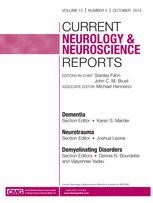Due to the recent focus on concussion in sports, a number of tests have been developed to diagnose and manage concussion. While each test measures different brain functions, no single test has been shown to quickly and reliably assess concussion in all cases. In addition, most of the current concussion tests have not been validated by scientific investigation. This review identifies the pros and cons of the most commonly used noninvasive tests for concussion in order to provide a more complete picture of the resources that are available for concussion testing. The potential utility of research tools such as the head impact telemetry system, advanced magnetic resonance imaging protocols, and biomarkers are discussed in the context of the currently employed tools.
“The King–Devick (K–D) Test is a rapid number naming test that captures impaired eye movements and saccades, attention, and language. These involve integration of functions of the brainstem, cerebellum, and cerebral cortex. Impaired eye movements and saccades have been shown to correlate with suboptimal brain function, particularly in patients following concussion. Because the K–D test does not require a medical professional and can be administered in 1–2 min, it is practical for sideline use at all levels of sports.”
Summary Points:
- The K-D Test is a fast, easy to administer, sideline screening tool which assesses > 50% of brain pathways in 1-2 minutes.
- K-D Test involves integration of multiple areas of the brain including the brainstem, cerebellum, and cerebral cortex.
- K-D Test can be administered by non-medical professionals.

